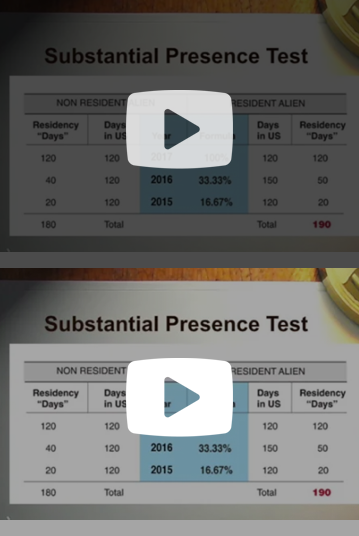Florida Corporations, Partnerships & Trust Tax Lawyer
The way an entity is formed has a significant impact on the way it is taxed. While taxation is not the only issue relevant to choosing a business structure, it is certainly a major factor worth considering as part of the overall business planning. See below for a discussion of taxation regarding corporations, partnerships and trust entities, and contact the Florida corporation, partnership & trust tax lawyers at Lehman Tax Law if you have a question or concern over taxation, or if the IRS is accusing you of running afoul of its highly technical and complicated tax laws.
Taxation of Corporations
In consequence of the Tax Cuts and Jobs Act of 2017 (TCJA), the top corporate tax rate is now 21%, reduced from the pre-TCJA top rate of 35%. A Subchapter C corporation is taxed at the corporate level on corporate profits, which equate to receipts less allowable deductions, including the cost of goods sold, wages and other employee compensation, interest, most other taxes, depreciation, and advertising.
In addition to lowering the top corporate tax rate, the TCJA eliminated the graduated corporate rate schedule and the corporate alternative minimum tax. Also, full expensing of most new investment is allowed through 2022, when it will start to be phased out over a period of years ending in 2026. The TCJA also limited net interest expense deductions to 30% of adjusted taxable income and made significant changes to multinational corporations and foreign-source income.
Corporations are subject to double taxation, in that corporate profits are taxed at the corporate level and again at the shareholder level, as shareholders are taxed on dividends and capital gains from the sale of shares. Qualifying dividends and long-term capital gains are taxed at 23.8%, while non-qualifying dividends and short-term capital gains are taxed as ordinary income up to 40.8% for people at the top marginal individual income tax rate.
There are ways to avoid double taxation, including changing the way the business entity is organized from a C corp to some other form, issuing debt instead of stock to finance investment, or retaining earnings instead of paying dividends. Additionally, a Subchapter S corporation is a pass-through entity not subject to corporate income tax, so there is no entity-level tax for an S corp. Rather, owners include their share of company profits in taxable income for purposes of paying individual income tax. Designation as a Subchapter S corporation does not require reorganization but is instead made through an election on the corporate tax return.
Taxation of Partnerships
Like S corps, partnerships are also pass-through entities. Although the partnership does file a tax return, the entity itself doesn’t pay income taxes. Instead, all profits pass through to the partners, who report their share of profits in their net income.
Under the TCJA, some pass-through income qualifies for a 20% deduction, which would effectively reduce the top marginal income rate of 37% to 29.6%. This qualified business income deduction under section 199A is set to expire in 2025. Your tax accountant or tax attorney can help you understand this deduction and whether it applies to you.
Taxation of Trust Entities
A trust is created when the grantor or settlor transfers property into the trust, where it is managed by a trustee for the benefit of a third party beneficiary. Trust funds may be cash, securities, real property or other investments. Hopefully, the trust funds are managed well and earn income for the trust. This income could be subject to income tax. How it is taxed depends on who receives the income. Income retained by the trust is taxed to the trust; income distributed to the beneficiary is taxed to the beneficiary. The trust itself is a pass-through entity, depending on the type of trust established, such as a revocable living trust versus a retained interest trust or charitable remainder trust.
The trust might also be exposed to transfer taxes, which are excise taxes imposed when property is transferred to another, including to a trust. The gift tax or the generation-skipping transfer tax may apply, and the estate tax could be implicated as well.



